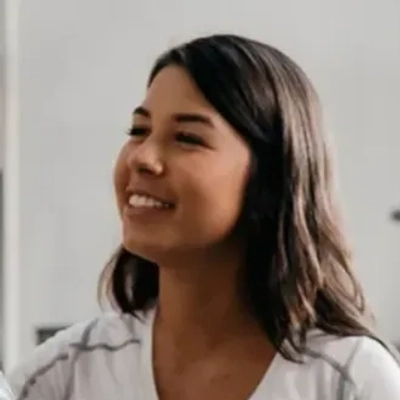5 Tips for Wearing Contact Lenses During Sports
Contact lenses can be a game-changer for athletes, but proper usage is crucial for optimal performance and eye health. This article brings together valuable insights from various experts, including optometrists, fitness instructors, and professional athletes. Discover essential tips and practical advice to ensure your contact lenses enhance, rather than hinder, your sporting experience.
- Optometrist Recommends Contacts for Active Lifestyles
- Fitness Instructor Shares Contact Lens Tips
- Footballer Suggests Silicone Hydrogel Lenses
- Water Sports Guide Relies on Daily Disposables
- Doctor Offers Practical Contact Lens Advice
Optometrist Recommends Contacts for Active Lifestyles
As an optometrist and someone who leads an active lifestyle, I absolutely recommend contact lenses for sports and physical activities. I often wear them myself during hiking, running, and recreational sports. Contact lenses provide a wider field of vision compared to glasses, they don't fog up with sweat or temperature changes, and they stay in place during movement—making them ideal for athletes and active individuals.
Here's the advice I give my patients and would share with anyone considering contacts for sports:
Choose the Right Lens Type: Daily disposable lenses are a great option for athletes. They offer maximum convenience, reduce the risk of infection, and you don't have to worry about cleaning or storing them after a game or workout.
Always Have a Backup Plan: Bring extra lenses and a pair of glasses with you. If your lens dislodges or irritates your eye mid-activity, you'll be glad you planned ahead.
Hydration Matters: Both for your body and your eyes. Stay hydrated and consider rewetting drops approved for contact lens wear if you're prone to dryness, especially during outdoor sports or in windy environments.
Protective Eyewear Still Matters: Even with contacts, I strongly encourage using sport-specific protective eyewear to shield against impact or UV rays, especially in high-contact sports or outdoor settings.
Regular Eye Exams Are Essential: Your vision needs can change over time, and ensuring your prescription is up-to-date is critical—not just for performance, but for your safety and eye health.
Ultimately, contact lenses can be a game-changer—both literally and figuratively—for people who want to stay active without compromising their vision. If you're considering them for sports, talk to your eye care provider about what's best for your specific lifestyle and visual needs.

Fitness Instructor Shares Contact Lens Tips
I've been leading fitness classes and personal training sessions for over 14 years, and contacts have been essential for my high-intensity work. During my Les Mills BodyPump and CXWORX classes, the constant movement and sweat would make glasses impossible.
My biggest lesson came during our outdoor summer bootcamps here in Alexandria - I learned to switch to a higher water content lens on humid days. The 58% water content lenses stay comfortable even during our hill sprint sessions, while my usual 38% ones would dry out completely. This small change eliminated the mid-workout discomfort that was affecting my ability to demonstrate proper form.
For group fitness instructors specifically, I always recommend having solution packets in your gym bag rather than bottles. When you're rushing between back-to-back classes like I do (sometimes teaching SPRINT then CXWORX within an hour), the individual packets are foolproof and won't leak all over your equipment.
The timing aspect is crucial when you're leading others - I put mine in during my pre-class setup, about 45 minutes before we start. This gives them time to settle while I'm arranging equipment and greeting members, so my vision is crystal clear when I need to spot form issues across the room.

Footballer Suggests Silicone Hydrogel Lenses
Yes, I've used contact lenses for a couple of years now, and I also wear them when playing football during leisure time. I've used both the silicone hydrogel and the ones without hydrogel. I usually experience a lot of dryness with the non-hydrogel type, especially when I run a lot during football, but it's been a long time since I switched to the silicone hydrogel, which is very good with almost no dryness or irritation. If you are into sports, I'd recommend you get the silicone hydrogel lenses, or if you can't get those, there are safe hydrating eye drops that your doctor can recommend for use.

Water Sports Guide Relies on Daily Disposables
I've been running jet ski and pontoon tours on the Gold Coast for years, spending over 10 hours daily on the water in harsh sun and salt spray conditions. Contact lenses are absolutely essential for my work - glasses would be gone within minutes of hitting the waves at high speed.
The game-changer for me was switching to daily disposable contact lenses specifically for water sports days. Salt spray builds up on lenses constantly, and when you're guiding customers through safety briefings or helping them dock, you need perfect vision. I go through two to three pairs during busy weekend tours because I'd rather swap them out than deal with cloudy vision when someone's struggling with their jet ski.
My practical tip: keep backup pairs in waterproof cases at multiple spots on your equipment. I learned this the hard way when a customer panicked during a pontoon tour and I lost a lens while helping them. Now I've got spares stored on the pontoon, in my tackle box, and even taped under the jet ski seats.
The timing trick I use is putting fresh daily lenses in right before we launch, not during morning preparation. The boat ride out to our tour spots gives them time to settle while I'm focused on navigation, so my vision is sharp when we hit the fun activities and customers need my full attention.
Doctor Offers Practical Contact Lens Advice
Yes, I wear contacts for sports, mainly padel and soccer. They don't fog, they stay put with quick moves, and my field of view is better than with glasses.
My advice is simple: always have clean hands every time you put them in or take them out. Never sleep with them; that's the fastest way to get an eye infection. If you can, use daily disposables for sports. Keep them away from water, like no showering or swimming. When eyes are dry and start to irritate, I recommend using some eye drops. Lastly, if an eye gets red or painful, take the lens out and switch to glasses until it calms down.
Julio Baute, MD
Clinical Content & Evidence-Based Medicine Consultant
invigormedical.com



